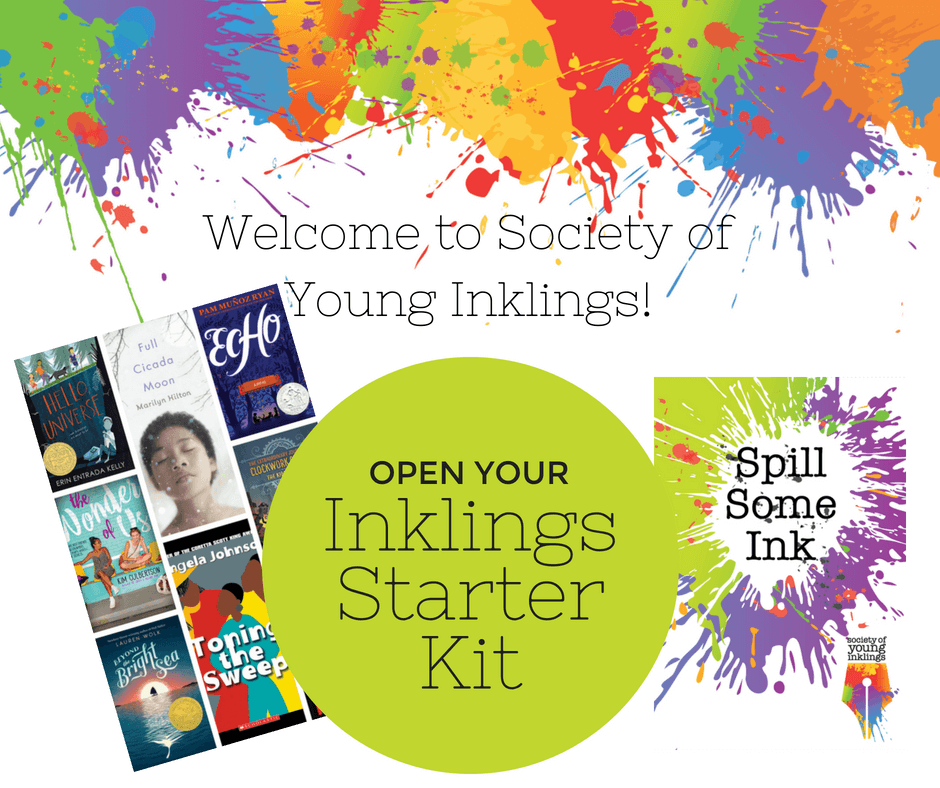For October’s issue of the Ink Splat, we spoke to Adrianna Cuevas, author of Cuba in My Pocket and The Total Eclipse of Nestor Lopez. She talks about the importance of knowing yourself and your process as a writer.
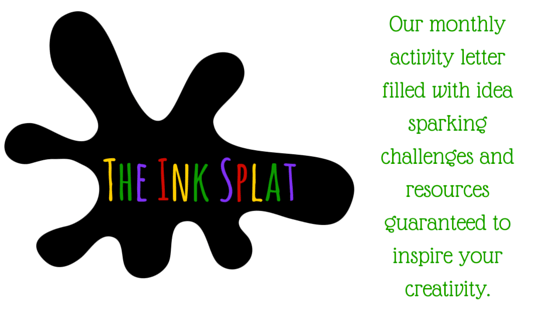
Writing Challenge
“What if?” questions are a great way to get ideas and start a story. For Cuba in My Pocket, my questions were “What if you got sent to another country all by yourself? And you didn’t speak the language and had to start over?” For The Total Eclipse of Nestor Lopez, my question was, “What if you could talk to animals?”
Brainstorm a list of five to ten “what if?” questions. They can be questions based on the real world or fantastical, things you’ve always wondered about, or whatever pops into your imagination from the prompt. Next, choose a couple of your favorites and makes some notes on how you could answer the “what if?” questions in a story.
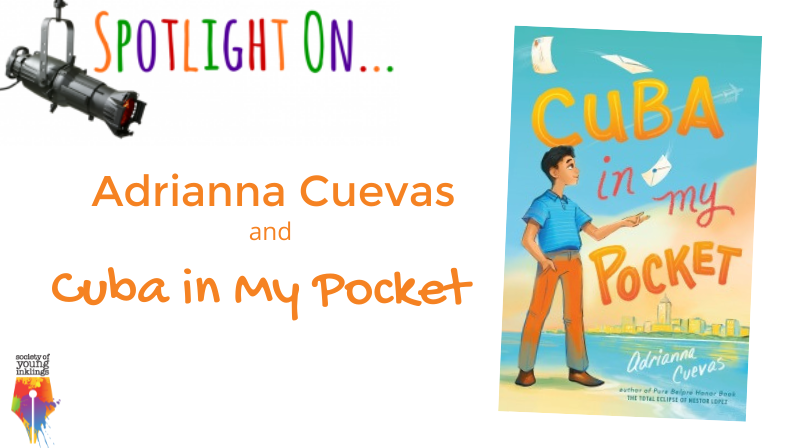
An Interview with Adrianna Cuevas
Did you always know you wanted to be a writer? Did you write as a child?
I have been wanting to be a writer since I was in fourth grade. My fourth-grade teacher was an author, and I still remember this activity that she did with us in class. She played some music, and we were supposed to draw all the images that popped into our heads as she was playing this music. My brain is always going full tilt, thinking up stories and images and everything, so that was no problem for me. So she played the music, and when it stopped, I looked at my paper and I got incredibly mad because what was on my paper looked nothing like what was in my head! And this teacher was the one who said, “Well, look, you’ve got all these stories and these images bouncing around in your head, and there’s another way to get them out of there and out into the world. And that’s through using words and storytelling.” And from then on, I never stopped writing creatively. And I had a family newsletter growing up, where I would have a column about who my sister had a crush on and critiques of my mother’s dinners and book reviews of the summer reading that I had to do. I just never stopped writing, and I think it’s because my parents and my family never treated it like a silly little hobby. They actually valued it. I come from a family of storytellers who always sit around the dinner table, just talking about our day, and naturally flow into talking about our lives and stories.
Tell us about the inspiration for your books.
When my son was in third grade, he was having trouble finding books that he connected with. And I realized that was because there were not a lot of books out there with main characters that were like him, who were Cuban American. And I thought, Well, you know what, I like telling stories, I will just write a book for him. So he was the first audience that I had in mind. For The Total Eclipse of Nestor Lopez, my personal inspiration was three things. My husband was a military policeman in the army, so all of those feelings that Nestor has in the book of having to talk to his dad through letters and email and the occasional video chat, that’s how I felt when my husband was gone. Second, there’s a ton of animal trivia in the book because my son would sit with this massive animal encyclopedia on my bed and go through and read the descriptions and ask me to guess what animal I thought it was. When Nestor in the book joins the animal trivia team, my son helped me come up with a lot of the questions that get asked. And finally, there’s a ton of Spanish and a ton of Cuban food in the book. And that’s because I’m Cuban American, and it was very important to me to put that in a book because there’s not a lot of books featuring Cuban American characters.
For Cuba in My Pocket, it was a totally different process because I was telling the story of an actual person, so it wasn’t just my imagination that was coming up with all of these things. As I interviewed my dad for the book, I realized that a lot of things that have happened in a person’s life don’t necessarily translate over into the way we know how to craft a story and plot a story. So there were things that I actually had to change in the story to make it more dramatic to make the plot flow the way that I wanted. And my dad was my reader, my expert, and after reading the book, he gave me the thumbs up, even though I had changed some things.
What’s a highlight in your life as an author?
In my journey to becoming an author, I’ve made friends with a lot of other authors. And I will say that one of the highlights has been seeing them succeed this year. When the American Library Association awards were announced, I found out that I had won a BelPre honor. Several of my friends also won honors, and I think I scared my mother because she was watching the announcements with me, and I kept screaming and shouting because my critique partner, Sarah Kapit, won for Get a Grip, Vivy Cohen, and several other friends got awards for their books. And I think it’s important as you pursue something to be mindful of lifting other people up as well, so it was very satisfying for me to see authors who had struggled with me, and had pandemic releases, to have those kinds of achievements come their way. Getting my own award actually meant more because my friends were also receiving awards as well.
Do you have any advice for our Inklings on how to go about their writing process?
Often you’re wondering, Am I doing this right? I guarantee you, no matter how you’re doing it, you’re doing it right if you’re doing it the way that works for you. Becoming an author or being a writer is finding what works for you, not just in the act of telling a story, but even just in figuring out how am I going to work? Do I need to listen to music? Do I need to sit in silence? Do I need to handwrite this out? Do I need to type it? I had to figure out and learn about my own brain and how it works and how I can tell a story. I quickly learned I can’t handwrite anything, because I would write myself notes and then I would spend half my time wondering what they said. Because of my short attention span, I have to have visual stimulation when I write. So I write watching television because I have to be able to look away from my computer screen for five seconds, get some different visual stimulation, reset my brain, and then I can look back at my computer screen. It would be absolute torture for me to write in silence because my brain would be working overtime to fill up that lack of stimulation. But everyone’s brain is different. Some writers would say, Oh my gosh, if I had the TV on, I’d never get anything done. So it’s important to realize that everyone’s different, and what works for you may not work for someone else. You have to find the process that suits you best and go with it.
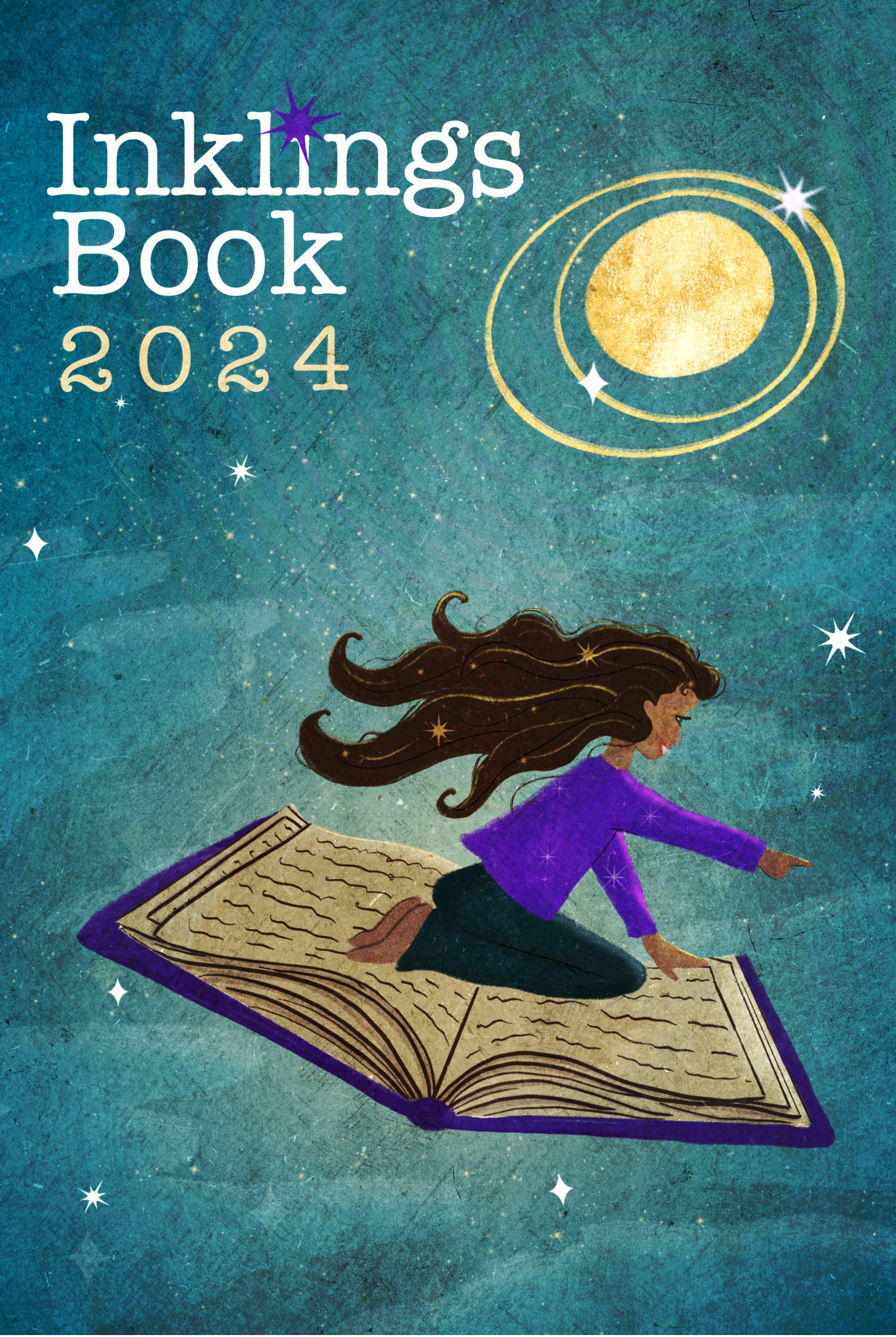
INKLINGS CONNECT
THE INKLINGS BOOKS ARE HERE!
Order your copies at your favorite local bookstore or grab them from Bookshop.org. We can't wait for you to read them!
Keep your creativity flowing with our upcoming events!
SEPTEMBER
- 9/1-9/30: Sign up for a 1:1 Mentorship to take your creativity to the next level as you discover, cultivate, and share your writing voice!
OCTOBER
- 10/1: All Ages Spilling Ink Writing Workshop (Inklings Membership only)
- 10/17: Teen Spilling Ink Writing Workshop (Inklings Membership only)
- 10/21: All Ages Spilling Ink Writing Workshop (Inklings Membership only)
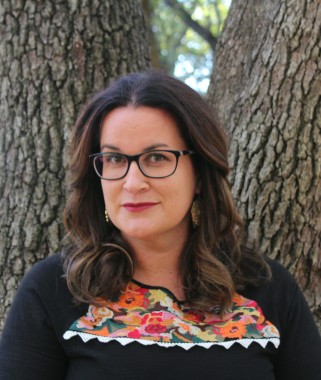
Thank you to Adrianna Cuevas for sharing with us! Check out all of her work on her website: adriannacuevas.com
Adrianna Cuevas is a first-generation Cuban-American originally from Miami, Florida. A former Spanish and ESOL teacher, Adrianna currently resides in Austin, Texas with her husband and son. When not working with TOEFL students, wrangling multiple pets including an axolotl, and practicing fencing with her son, she is writing her next middle-grade novel.
She is represented by Stefanie Sanchez Von Borstel of Full Circle Literary.
SPARK YOUR CREATIVITY!
As a bonus gift, we’ll send you an Inklings Starter Kit packed with creativity-sparking fun.
